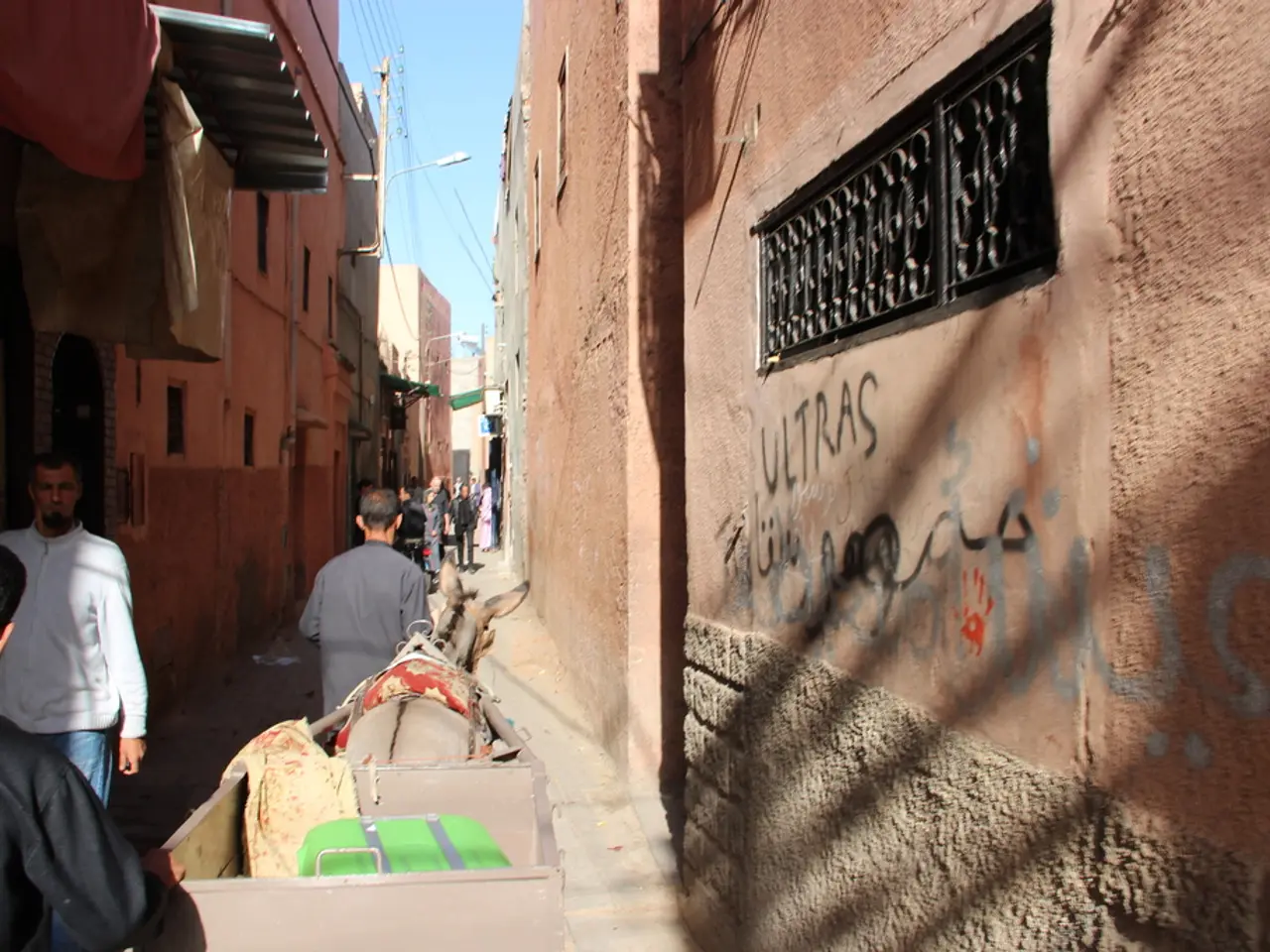Border delays hampering humanitarian assistance to Gaza due to bureaucratic complications
Delays and Rejections in Aid Delivery to Gaza Cause Humanitarian Crisis
Delays and rejections in the delivery of aid to Gaza have led to a worsening humanitarian crisis in the region. The United Nations Relief and Works Agency for Palestine Refugees in the Near East (UNRWA) has not been allowed to send aid into Gaza since March, resulting in a severe shortage of essential supplies.
The reasons for these delays are numerous. Limited border crossings, permission delays, bottlenecks, and damaged infrastructure all contribute to the slow pace of aid delivery. According to reports, trucks often wait up to 46 hours for final permissions to travel along approved routes, and the few available roads and checkpoints, combined with badly damaged infrastructure, slow down the movement of aid convoys.
The ongoing conflict and security issues in the region further complicate matters. Israeli troops have been reported to fire towards aid-seekers, and the displacement of humanitarian workers due to insecurity reduces operational capacity.
In addition to the logistical challenges, there are also issues with the rejection of aid shipments. The Israeli authorities have strict security checks and restrictions on items entering Gaza, including a ban on certain non-food and shelter items since March 2025. There are disputes over whether the amount of aid allowed into Gaza is sufficient, with humanitarian organizations arguing that more is needed to address the crisis.
Political tensions and diplomatic disagreements also play a role in the approval of aid shipments. Reports of conflicting narratives over the extent of aid needed and delivered have led to criticism from both sides.
As a result of these delays and rejections, essential supplies such as oxygen tanks, wheelchairs, car tires, generators, and first-aid kits remain stranded at the Rafah border. The World Food Programme has only managed to get 73 of the 400 trucks it sent since July 27 into Gaza.
The Israeli military agency that coordinates aid, COGAT, stated that Israel invests "considerable efforts" in aid distribution and allows and facilitates the provision of humanitarian assistance to the Gaza Strip without any quantitative limit. However, aid workers have described rejections of goods as routine, and hundreds of truckloads of aid still await collection by the U.N. and international organizations on the Palestinian side of the border crossings.
The U.S. has stated that at least 600 trucks per day are needed to feed Gaza's population, but the current situation falls far short of this target. The delays in aid delivery have led to a crisis, with more than 200 Gazans reported to have died of malnutrition or starvation, according to Palestinian health authorities. However, the U.N. human rights office and several expert studies suggest that the number is likely an undercount.
The situation in Gaza is critical, and urgent action is needed to address the humanitarian crisis. The delays and rejections in aid delivery must be addressed to ensure that essential supplies reach those in need.
Read also:
- Explored the Popular Health Assessment with a Queue of 100,000 Aspiring Participants - Here's My Unadulterated Opinion
- Hearing impairment condition: Recognizing symptoms and management approaches
- Exploring Recurring Actions in Mature Individuals: An Analysis of Persistent Actions in Adults' Daily Lives
- Signs of Cataracts Emergence: Impact on Vision and Further Details





